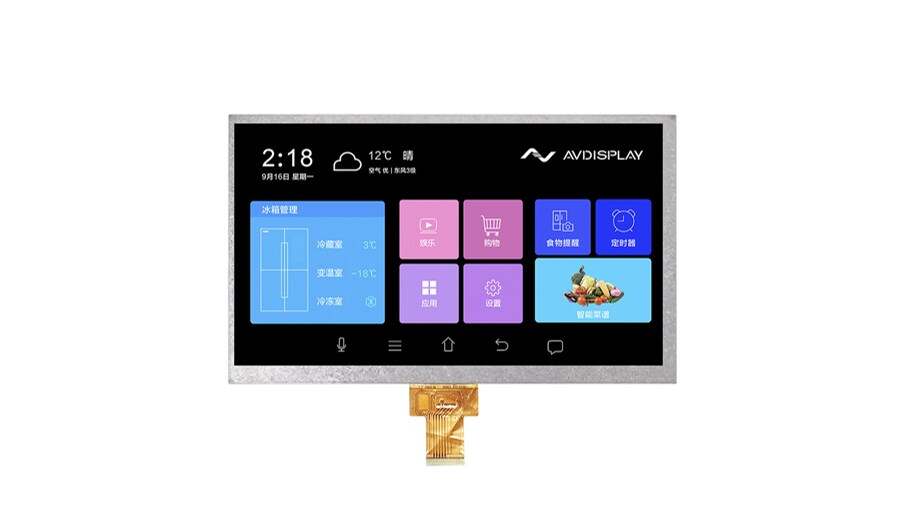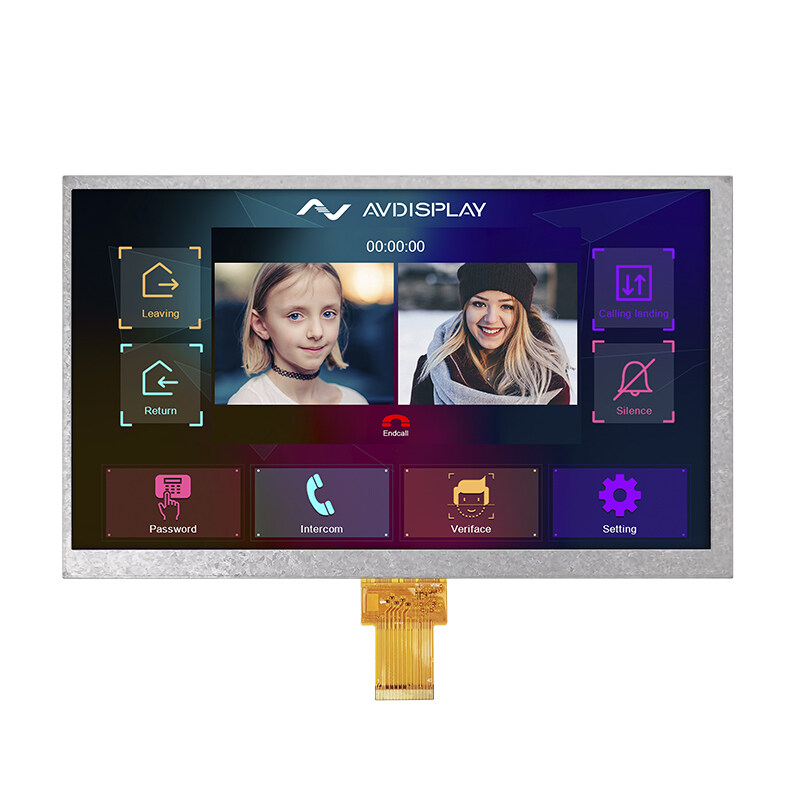Email format error
Email cannot be empty
Email already exists
6-20 characters(letters plus numbers only)
The password is inconsistent
Email format error
Email cannot be empty
Email does not exist
6-20 characters(letters plus numbers only)
The password is inconsistent


In today’s digital age, the demand for intuitive, high-quality, and custom touch panels is rapidly increasing. From smartphones and tablets to advanced machinery and smart home systems, touch panels are revolutionizing how we interact with technology. For businesses, manufacturers, and designers, custom touch panels offer an opportunity to create unique, user-friendly experiences tailored to specific needs. But what exactly makes a custom touch panel superior, and why is it essential for businesses across various industries?
Custom touch panels allow businesses to go beyond the limitations of standard, off-the-shelf touch solutions, offering designs that meet unique user requirements, environmental challenges, and application needs. With tailored interfaces, advanced features, and specialized durability, these panels enhance both usability and product longevity.
Custom touch panels have applications across a wide range of industries, each with unique requirements. Here’s a closer look at how various sectors use these versatile tools.
In healthcare, custom touch panels are essential for ensuring safe and efficient patient care. Medical devices need to be user-friendly, reliable, and highly responsive. Touch panels in this industry often require:
Custom panels in healthcare settings enhance patient monitoring, make medical equipment easier to use, and ultimately improve the quality of care provided.
In manufacturing and industrial automation, custom touch panels play a vital role in optimizing workflow and safety. These touch interfaces must endure extreme conditions, from dust and moisture to temperature fluctuations. Industrial touch panels are often customized with:
By utilizing custom touch screens, industrial operators gain improved control over machinery, streamlined data input, and efficient access to vital information.
The automotive industry increasingly relies on custom touch panels to create innovative in-car experiences. Modern vehicles are equipped with touch panels for navigation, infotainment, climate control, and other features. Customization in automotive touch panels includes:
Custom panels not only improve the functionality of in-car systems but also align with each manufacturer’s unique brand aesthetic.
Custom touch panels in consumer electronics focus on delivering a seamless and immersive experience. With the rise of smart home devices, wearable tech, and more interactive electronics, custom touch panels enable the development of products that stand out in a competitive market. Common customizations include:

When choosing a custom touch panel, certain features can make all the difference in functionality, durability, and usability. Here are some essential features to keep in mind:
The touch panel should have highly responsive and accurate touch sensitivity, essential for applications where precision matters. Many panels support capacitive touch technology, which enables multi-touch gestures and is known for its high sensitivity.
Industries like automotive, healthcare, and industrial automation need panels that can withstand environmental challenges. Consider features like IP ratings for water and dust resistance, anti-scratch surfaces, and impact resistance for increased durability.
A touch panel’s visibility, especially in outdoor or brightly lit environments, depends on its optical clarity and brightness levels. Anti-glare coatings and high-brightness screens help maintain visibility, making it easier for users to interact with the device.
In applications where a standard rectangular shape does not meet design requirements, custom-shaped touch panels offer greater flexibility. Whether it’s curved for an automotive dashboard or uniquely sized for a handheld device, the ability to tailor the panel’s form factor is a significant advantage.
The ability to recognize multiple touches and gestures improves the versatility of a touch panel, especially for devices that require complex interactions. Many custom touch panels include multi-touch support, allowing for features like pinch-to-zoom, swipe, and other familiar gestures.
Each industry and application has unique requirements, so custom touch panels must be designed with specific use cases in mind. Here’s how designers can approach creating the ideal panel for different applications:
For medical applications, prioritize panels with antibacterial coatings, glove-friendly touch capabilities, and high sensitivity. Design considerations should also include easy cleaning surfaces, rounded corners for safety, and highly visible displays to support critical decision-making in healthcare environments.
In industrial settings, robustness is key. Choose materials that resist water, dust, and other environmental hazards. Ensure the panel supports multi-touch functionality to allow for more intuitive interactions, and make the display bright enough for outdoor or brightly lit settings.
Automotive touch panels must provide functionality without distracting the driver. Curved designs, anti-glare screens, and haptic feedback are vital features. Design elements should seamlessly blend with the car’s interior, ensuring aesthetic appeal while maintaining safety and usability.
Developing a custom touch panel involves collaboration between designers, engineers, and manufacturers. The process typically includes:
Finding the right manufacturer for your custom touch panel is crucial for achieving high-quality results. Consider the following when selecting a manufacturer:
As technology advances, custom touch panels are expected to become even more versatile, efficient, and user-friendly. Here are some emerging trends shaping the future of custom touch panels:
Haptic feedback is becoming increasingly sophisticated, offering users a more tactile and immersive experience. This feature can be especially useful in automotive and industrial applications where users rely on tactile feedback for enhanced control.
Future touch panels are likely to support gesture and voice recognition, making interaction even more intuitive. These capabilities are expected to improve accessibility and make touch panels easier to use in hands-free environments.
Sustainable materials and energy-efficient designs are gaining popularity as companies look to reduce environmental impact. Eco-friendly touch panels not only benefit the planet but also appeal to environmentally conscious consumers.
Incorporating a custom touch panel into your product or system opens up possibilities for enhanced user experience, greater efficiency, and better brand alignment. With features tailored to meet specific requirements, custom touch panels empower businesses across industries to stand out and stay competitive. As technology evolves, the potential applications and capabilities of these panels will continue to expand, making them an invaluable tool in the modern digital landscape.